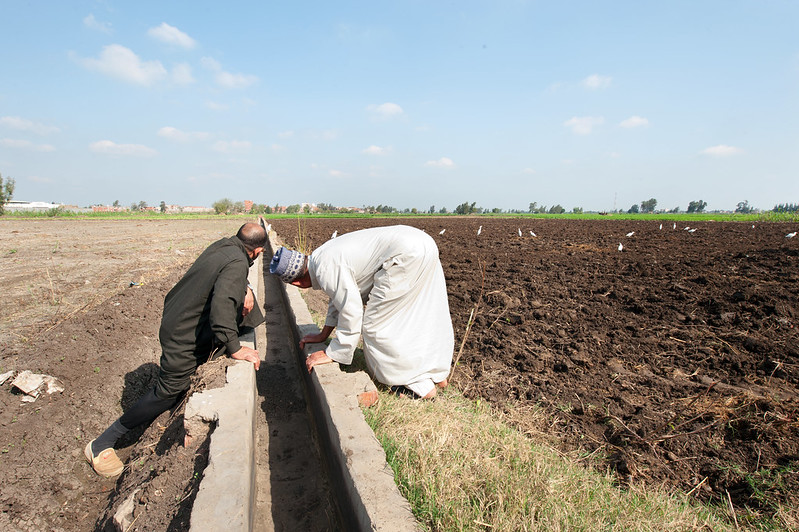What are the state-of-the-art and new approaches to land consolidation as part of integrated rural development strategies in North Africa and Near East? That was the main question around which several experts from Egypt, Morocco, Sudan, Tunisia, and Turkey joined the FAO/ RVO roundtable discussion on land consolidation during the Second Arab Land Conference last February; a session which 110 participants attended – both in person and online.
Throughout the conference, the land consolidation theme was confirmed to be of high importance and interest for the Arab World. The objective of the roundtable was to initiate a dialogue and to share experiences between countries in North Africa and Middle East, while also bringing in lessons from Europe on land consolidation building on lessons learned from FAO and RVO. Countries in the MENA region are facing many similar challenges, which include fragmentation of agricultural land, need for improved and more efficient irrigation, and strong impacts of climate change on agricultural production.
The discussion highlighted that land consolidation is an instrument, which, in addition to traditional agricultural objectives, can contribute to the implementation of nature restoration, environmental and infrastructure projects. Important side effects of land consolidation include clarification of ownership and registration of property rights (creating opportunities for recognizing and formalizing women’s rights), formalization of inheritance, and updating the cadaster records.
There is an increased demand from the countries for democratic and participatory approaches to land consolidation focusing inter alia on youth, women, and vulnerable groups. The examples brought in by the different speakers during the roundtable demonstrated the importance of transparency and communication for the success of land consolidation and the satisfaction of landowners and farmers.
From this roundtable discussion, it became evident that there is a lot to be gained by sharing experiences across regions. The call that came from the discussions was to deepen cooperation and continue exchanging about ongoing land consolidation projects and programs, for example through the establishment of a community of practice. Such a community of practice could unite participants from different countries in the Arab region, as well as across different regions. As part of the new LAND-at-scale intervention in Egypt, continuous exchange and learning amongst other countries in the region will be part of the agenda.
If you are interested in further information, please reach out to us at landatscale@rvo.nl.
Photo source: IWMI (via Flickr Creative Commons)



